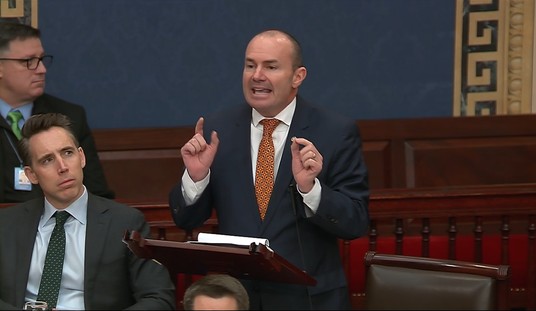
Attorney General William Barr appears before a Senate Appropriations subcommittee to make his Justice Department budget request, Wednesday, April 10, 2019, in Washington. (AP Photo/Andrew Harnik)
The DOJ opened what it calls a broad anti-trust review of major big tech companies, a move that’s been threatened by President Trump in the past.
This comes in response to more and more questionable behavior by big tech companies, including accusations of partisan speech suppression and even evidence of Google working with China.
The U.S. Department of Justice said on Tuesday that it’s opening a broad antitrust review of big tech companies, sending shares of Amazon, Alphabet and Facebook lower in extended trading.
While the DOJ didn’t disclose specific company names, it’s launching the review based on “new Washington threats” from Facebook, Google, Amazon and Apple, according to a report by the Wall Street Journal. The agency will examine practices of online platforms that dominate internet search, social media and retail services, the DOJ said in a statement Tuesday.
The DOJ put out a statement, highlighting some of the issues they’ll be investigating.
The DOJ said in Tuesday’s release that it’s looking into competition, “stifled innovation” and the impact on consumers.
“Without the discipline of meaningful market-based competition, digital platforms may act in ways that are not responsive to consumer demands,” said Makan Delrahim, assistant Attorney General of the Justice Department’s antitrust division, in the statement. “The Department’s antitrust review will explore these important issues.”
This will likely cause a split within conservative thought. There are some that say big tech companies should be free to do as they please, no matter what that entails. In theory, that sounds good and principled. I’m not sure how workable it is in reality and that’s something that’s going to have to be grappled with. Everyone is fine with the status quo until the status quo eats them and the tech companies are only becoming more illiberal in their policing of speech and suppressing content.
As I’ve argued before, I see no contradiction, nor do I consider it “big government” to make tech companies live by the same rules as other publishers of content. What makes a social media platform different than a news website that can be sued for copyright infringement? Technically, there is no difference. We’ve just allowed big tech to pretend there is while simultaneously operating as curators of content. Section 230 was originally meant for ISPs, not websites like Facebook. If Facebook would like those protections, I see no reason they can’t simply operate as a public utility and open platform.
Obviously, there are other issues at play. Some will claim Section 230 never mandated neutrality. I’m not sure that’s true given it’s intent, but regardless, there is still a problem to be dealt with. Laws can be changed and I see absolutely no issue with telling big tech to not discriminate or face the same environment everyone else does on the internet in terms of liability. No new regulation or government control is needed. They can simply face the free market of lawsuits and see how they fare.
The issue of anti-trust laws takes things a step further though, possibly breaking up big tech companies that are colluding, participating in monopolistic behavior, and/or discriminating on partisan grounds. We are in uncharted waters in regards to this issue. It’s not enough to just appeal to principle when a company like Google can literally erase history with their machinations. There are very legitimate concerns that a few big tech companies could have near complete control of the flow of information.
I’m not sure I agree that anti-trust laws have been broken, but that’s the point of a review. Perhaps it will at least put pressure on these companies to take a step back. If that happens, it’ll be a good thing.
Enjoying the read? Please visit my archive and check out some of my latest articles.
I’ve got a new twitter! Please help by following @bonchieredstate.















Join the conversation as a VIP Member